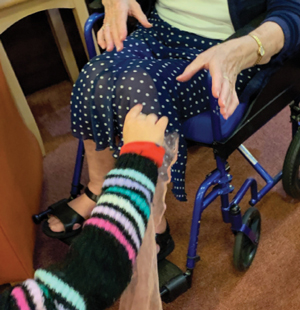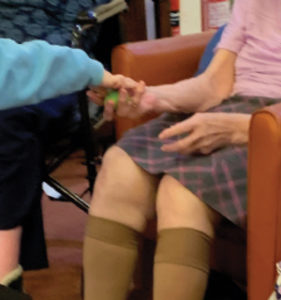by Siobhan Dolan
PR Manager, Viva!
From the moment I found out I was pregnant, I had no doubt I’d raise my child vegan. Good nutrition is the key to a healthy life and I knew that by feeding my baby a balanced healthy vegan diet they would thrive.
 At that time I’d already been vegan for seven years, I worked for the vegan campaigning charity Viva! and had a good knowledge of vegan nutrition. Despite all of this, I was still confronted with questions from others about my decision. How will your baby get their protein? Is it right to force veganism on a child? Won’t they feel left out?
At that time I’d already been vegan for seven years, I worked for the vegan campaigning charity Viva! and had a good knowledge of vegan nutrition. Despite all of this, I was still confronted with questions from others about my decision. How will your baby get their protein? Is it right to force veganism on a child? Won’t they feel left out?
One of the first challenging situations I encountered was during my first appointment with a midwife. I explained I was vegan and was told straight away that I would be low in iron – before she had even taken a blood sample! It was time to put the record straight – I explained how it is a misconception that all vegans are low in iron and there are countless iron rich vegan foods including leafy greens, pulses, seeds and nuts. If a healthy balanced diet is followed vegans can even have higher levels of iron than meat-eaters! The EPIC-Oxford study, the largest single study of Western vegetarians and vegans to date, found vegans had the highest intake of iron, followed by vegetarians then fish-eaters with meat-eaters coming last.
In the same appointment I was given a long list of animal-based foods that were off limits during pregnancy such as mould-ripened cheeses (like brie and camembert), soft blue cheeses, raw eggs, pâté, undercooked and cold cured meats, liver and mercury-containing fish such as shark, swordfish or marlin. None of the foods were vegan, so I could still safely (and smugly) eat everything I enjoyed with the peace of mind that it was safe for my baby.
As the pregnancy progressed I felt healthy and strong. I continued to cycle to work and regularly practiced yoga. I took care to ensure my iron levels didn’t drop during pregnancy (they often do because the body produces more blood for the developing baby). To combat this I ate a variety of iron rich foods including dark leafy greens and a daily natural organic iron supplement. In addition to this I took vitamin B12, vitamin D, folic acid and omega-3 supplements. Viva!’s Mother and Baby guide was my go-to for nutritional information as it provides practical tips for pregnancy and beyond.
My baby was born a healthy 8.9lb and was full of beans! I breastfed him from birth and began to wean him at six months. Initially, I introduced soft nutrient-dense foods such a banana, avocado and sweet potato. Once he mastered the act of chewing I introduced high-protein foods such as lentils and tofu combined with vegetables and carbohydrates (rice, pasta and wholemeal bread). Nutrient-dense foods rich in healthy polyunsaturated fats are recommended for young children as the energy found in them is essential for growth and development. Nut butters, ground chia seeds, hummus, avocado and vegetable oils are all excellent sourced of healthy vegan fat.
For reference I use a set of Viva! wallcharts on my fridge which outline iron, calcium and protein rich foods. I find them really useful and they help me to plan nutritionally balanced meals for my family.
Before I knew it, my maternity leave was coming to an end and it was time to find a nursery place for my son. As a vegan, finding a nursery that offered good vegan food was a priority. Sadly, several nurseries I approached didn’t cater for vegans. Fortunately, I found a fabulous nursery with an in-house chef who was happy to accommodate us. My son is their first vegan child and we’ve been welcomed with positivity and a dash of intrigue!
I’ve provided the nursery with a few vegan cookbooks and suggested how their meat options could be made vegan by using pulses rather than expensive processed substitutes, which would result in cheaper and healthier food. They have provided us with oat milk for cereal and are in the process of sourcing soya yoghurt so my son can have the same dessert as the other children. Luckily the nursery doesn’t offer cake or chocolate so we haven’t had to find alternatives.
In summary, being a vegan parent can have its challenges. Sometimes outsiders can be quick to judge the vegan lifestyle. However, if you are prepared to be patient, explain veganism to others and encourage inclusivity, you may find a more welcoming reception from sceptics. Veganism is undoubtedly the most compassionate lifestyle choice for children and offers countless health benefits too, setting your baby up for a long and healthy life!
Useful links:
www.nhs.uk/conditions/pregnancy-and-baby/vegetarian-vegan-children/
www.vivashop.org.uk/collections/materials/products/nutritional-poster-trio-deal
www.vivashop.org.uk/products/vegetarian-and-vegan-mother-and-baby-guide
Viva! is the UK’s leading vegan charity www.viva.org.uk

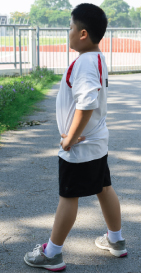
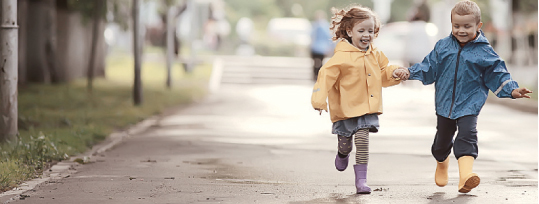


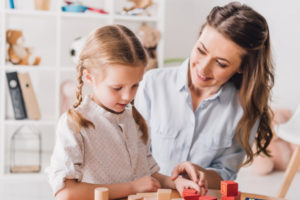 However, concerns have already been raised about the lack of mental health services available to young people once issues have been identified. Shadow Health Secretary Barbara Keeley said: “Once again we hear warm words from the Prime Minister on mental health, but the reality is that mental health services are stretched to breaking point and people with mental health problems aren’t getting the support they need.”
However, concerns have already been raised about the lack of mental health services available to young people once issues have been identified. Shadow Health Secretary Barbara Keeley said: “Once again we hear warm words from the Prime Minister on mental health, but the reality is that mental health services are stretched to breaking point and people with mental health problems aren’t getting the support they need.”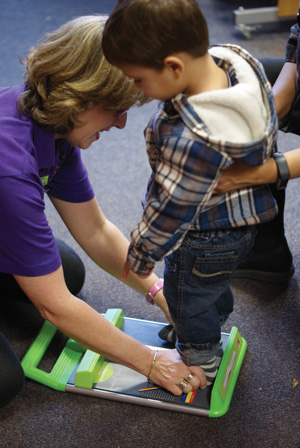
 Having over 30 years combined shoe-fitting experience, we could line up at least 10 pairs of the same size shoe, but if they are all 10 different brands, even if they are similar styles, we can guarantee that they will all fit slightly differently on one child’s feet! Some of those fits will be better than others – this is where our guidance, advice, knowledge and expertise comes into play.
Having over 30 years combined shoe-fitting experience, we could line up at least 10 pairs of the same size shoe, but if they are all 10 different brands, even if they are similar styles, we can guarantee that they will all fit slightly differently on one child’s feet! Some of those fits will be better than others – this is where our guidance, advice, knowledge and expertise comes into play.
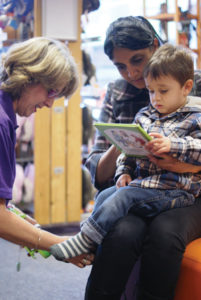


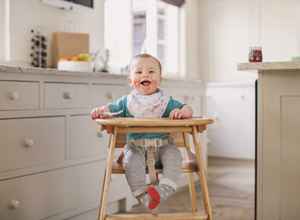
 Organix weaning and finger foods help babies discover new shapes, tastes and textures, and our wide range of toddler snacks provide parents with healthier snacking options to fuel happy days.You can find heaps of further information in the Organix Baby & Toddler Cookbook which has over 70 quick and easy recipes from weaning purees to dinner time faves for the whole family to enjoy!
Organix weaning and finger foods help babies discover new shapes, tastes and textures, and our wide range of toddler snacks provide parents with healthier snacking options to fuel happy days.You can find heaps of further information in the Organix Baby & Toddler Cookbook which has over 70 quick and easy recipes from weaning purees to dinner time faves for the whole family to enjoy!